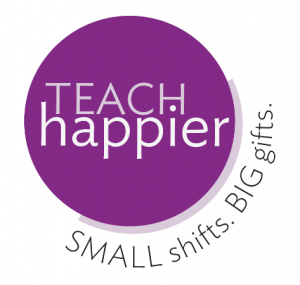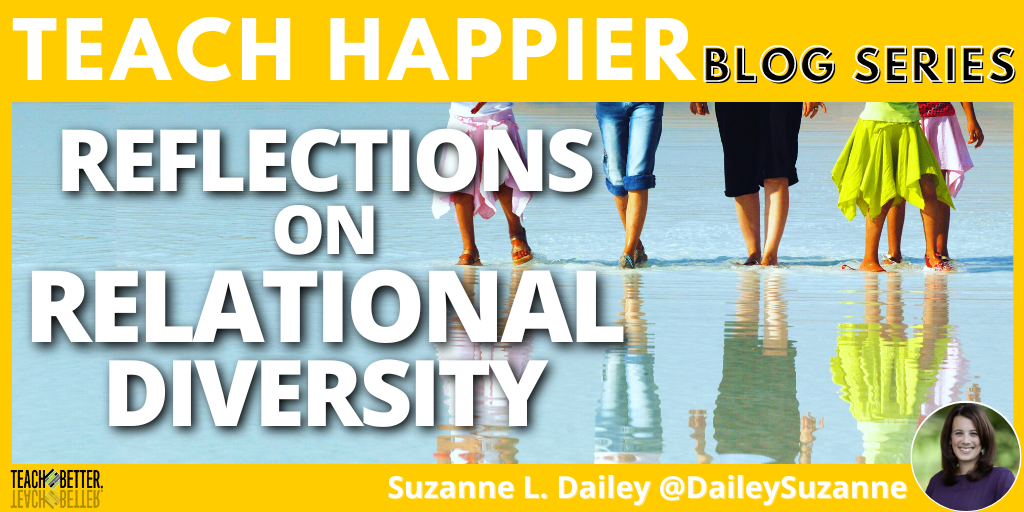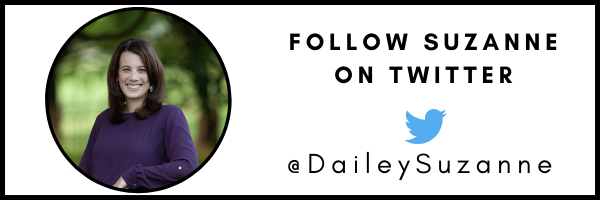TL;DR:
- Relational diversity refers to the variety of social interactions we have regularly.
- Interacting with more people from different groups in your life leads to a higher level of relational diversity.
- Examining and increasing our relational diversity helps us feel better physically, emotionally, and mentally.
You can go ahead and file this under “Things I Already Know.” According to positive psychologists, 100% of happy people have the same thing in common: strong social relationships. In this Teach Happier space, we know this. We celebrate this and prioritize nurturing relationships with those that are good to us and for us.
Hanne Collins is a PhD student in organizational behavior at Harvard, and she invites us to go one step further and explore the concept of relational diversity. In other words, do we interact in a variety of social interactions regularly? Collins believes that the more diverse these interactions are, the better our physical, emotional, and mental health.
She summarizes it like this: “Let’s say you have 8 conversations in a given day. If 6 of these conversations are with coworkers and 2 are with your partner, that represents low relational diversity. If instead, you have 2 conversations with coworkers, 2 with friends, 1 with a neighbor, 1 with an acquaintance at the grocery store, 1 with your partner, and 1 with your mom, then you’ve just had a relationally diverse day.”
Let’s be a bit more mindful of who we connect with. Maybe we try to go just a little outside our comfort zone to connect with others in a different capacity or lean into those weak ties a little more. Click To TweetExamining Our Relational Diversity
With so much of our communication happening through technology or algorithms, it’s quite easy to be aligned with others that are a whole lot like ourselves, so we may have to get crafty with how we create opportunities to interact with a variety of people or groups. 50 years ago, neighbors talked to each other because they had to. Now, we sometimes have to engineer it. Yes, it’s a shift in thought and action, but if examining our relational diversity can help us feel better physically and emotionally, it’s worth it.
This idea of relational diversity has encouraged me to think about my typical conversations throughout the work week or weekend. I believe I have a pretty good blend of individuals and groups, and moreover, my life aligns with what the research says: I am in a much healthier headspace and heartspace when I connect with various, different people.
This doesn’t always happen naturally; I do have to engineer it at times. Yes, I have my best friend groups and beloved work people groups—that is easy and natural. And when I lean into other “engineered” diverse groups like my multigenerational book club, my church book club, volunteers and guests at a local shelter, and my professional learning community, I feel more connected. Grounded. Anchored. Happy.
[scroll down to keep reading]Our Invitation
Our invitation this month is to pay close attention to our interactions throughout the week and do a little reflecting. Would you say you have lower or higher levels of relational diversity? If you’re feeling good about the levels of relational diversity in your life, maybe do one thing to nurture and strengthen those relationships. If it’s a bit lower than you want, perhaps consider connecting with others outside of these typical interactions.
Let’s be a bit more mindful of who we connect with. Maybe we try to go just a little outside our comfort zone to connect with others in a different capacity or lean into those weak ties a little more. This could help our heads, hearts, and perspective become a little bit stronger.
 Small Shifts, BIG Gifts!
Small Shifts, BIG Gifts!
Take some time to reflect on the individuals and groups you connect with on a regular basis. Would you say you have higher or lower levels of relational diversity in your personal and professional lives?
About Suzanne Dailey
Suzanne Dailey is a proud member of the Teach Better Family! She is an instructional coach in the Central Bucks School District where she has the honor and joy of working with elementary teachers and students in 15 buildings. Suzanne is Nationally Board Certified, a Fellow of the National Writing Project, and has a master’s degree in Reading. She is dedicated to nurturing and developing the whole child and teacher. Suzanne lives in Doylestown, Pennsylvania with her husband and two children.





